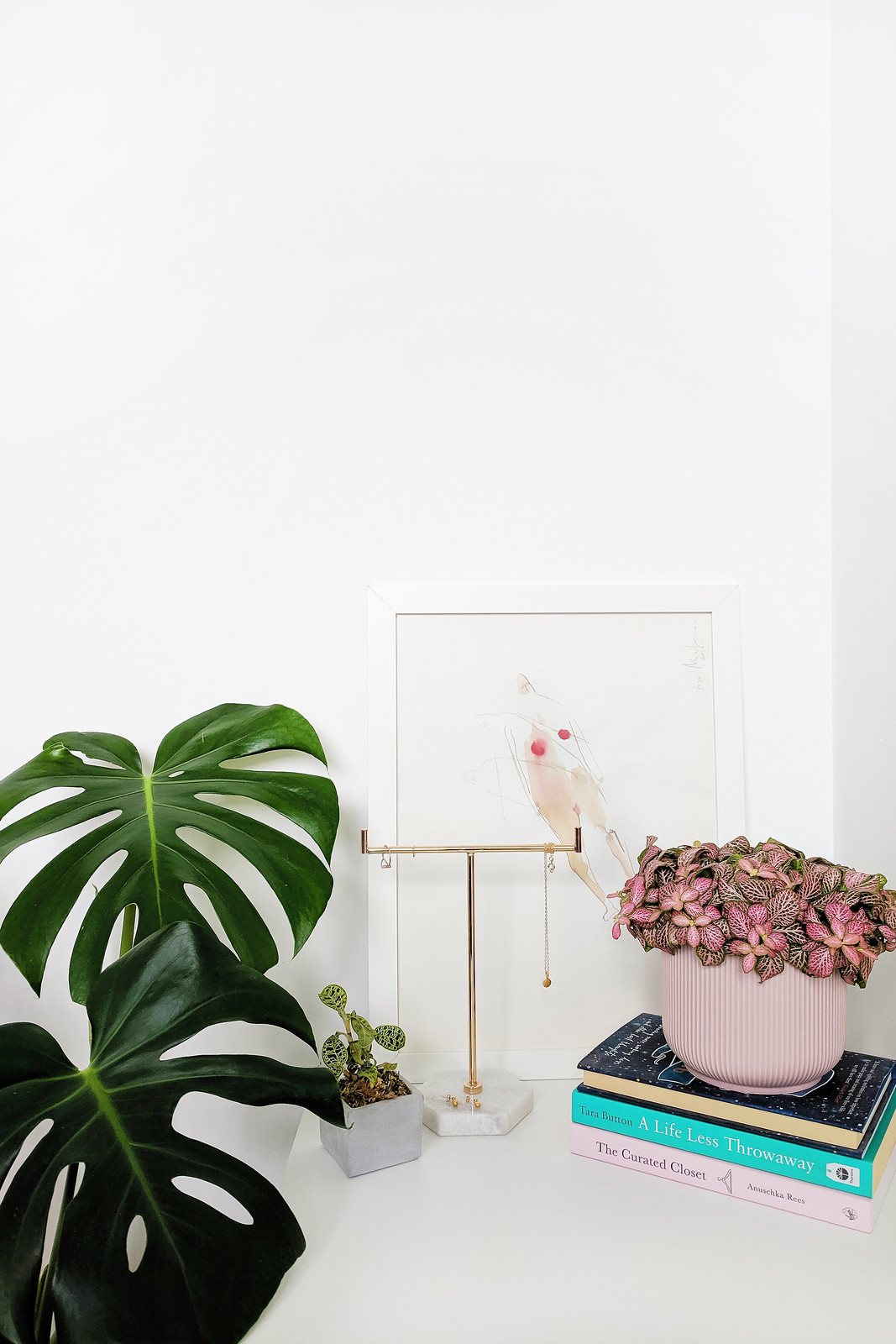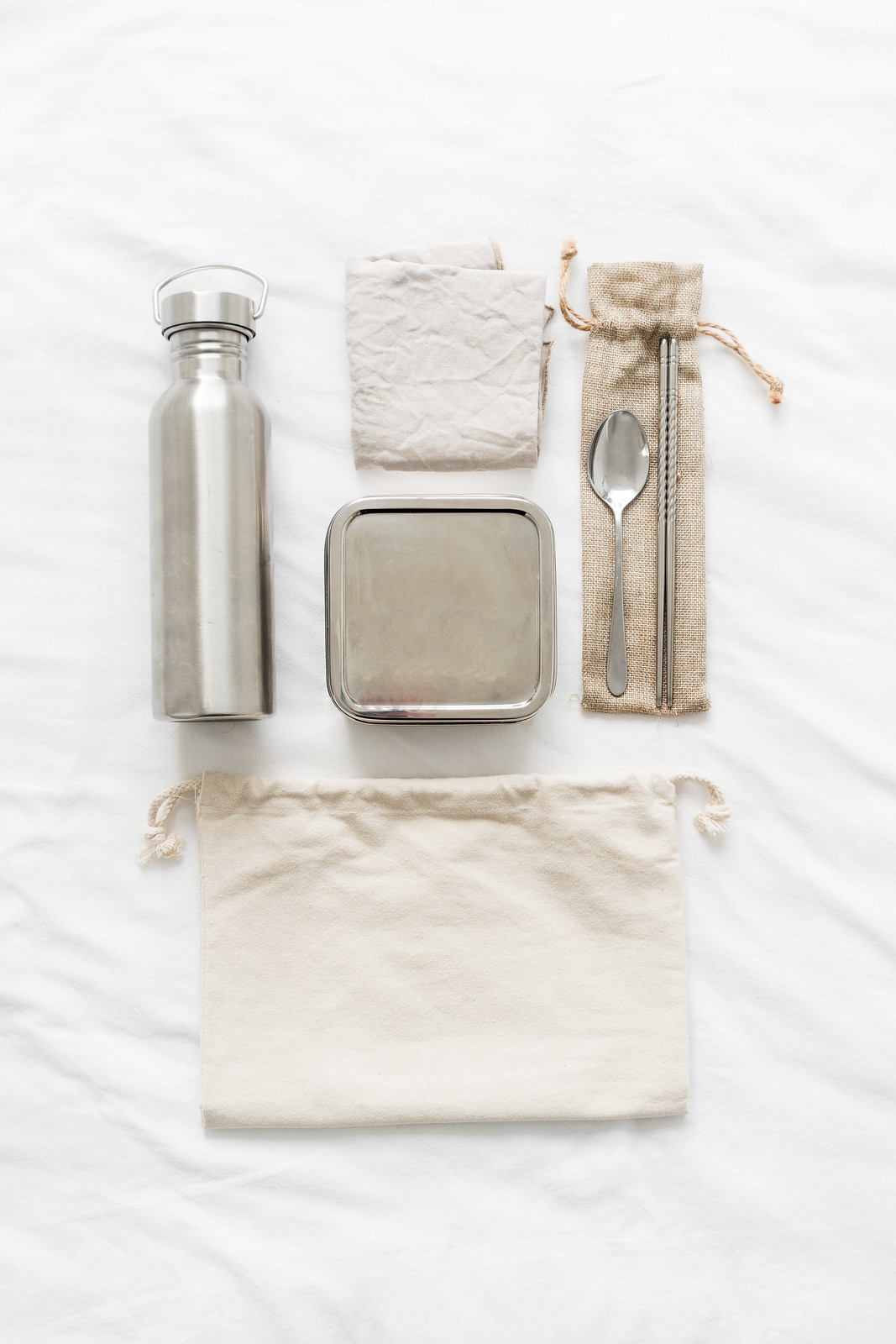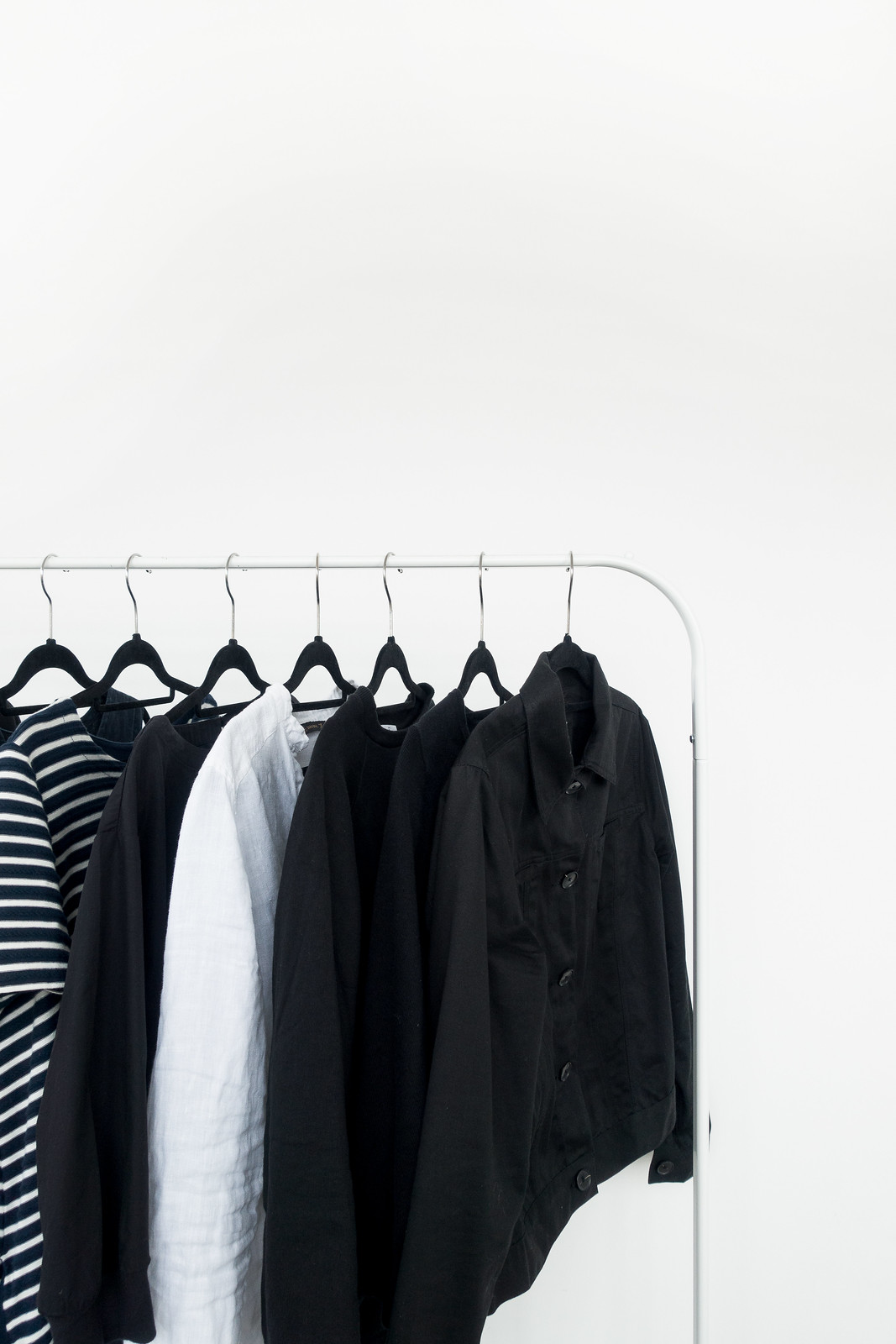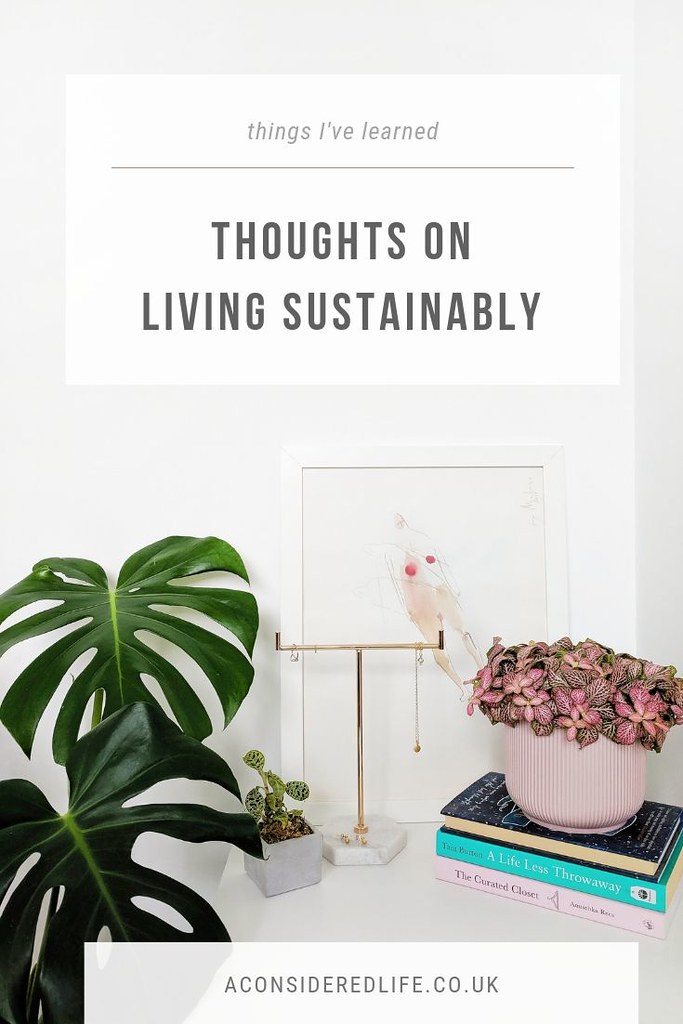
I turn 35 this month. Age hasn't ever meant all that much to me and other than wanting to spend time with friends and family, birthday celebrations aren't something I'm overly fussed about either. But 35 feels a little different. There's no great shifts happening, in fact, the opposite is true. Things have settled. I'm comfortable. Life is good.
For the last few years, I've been working on simplifying my life, particularly limiting and eliminating the amount of waste I produce. This year marks 15 years of veganism, 5 years of minimalism, and 3 years of low waste living - and I've documented it all right here. It's been exciting to watch the changes I've made unfold through expressing my values, personal and environmental, through my lifestyle. I'm leaning into the things (and people) that enrich my life, and stepping away from the ones that don't.
I've reached a point in my life where I feel more like myself than I've ever felt.
I'm confident in my decisions but I'm not afraid to change.
I'm happy with how I look but I'm still curious about style.
I have work to do but it doesn't feel so scary anymore.
In today's post, I'm sharing the lessons I've learned from living a considered life and a few ambitions for the future.

Lessons Learned
Patience Is Essential
Nothing happens overnight. If you want to live a simpler life, make it more sustainable, or just align your actions with your beliefs, patience is essential for long-lasting results.
I'm not a fan of the "baby steps" approach, it doesn't work. To make meaningful changes you have to get uncomfortable and challenge yourself. Easy switches make us feel good but they only serve to postpone the heavy work that actually has an impact. The most impactful changes involve discomfort at the start, and then suddenly we can't imagine life any other way.
That said, setting a goal and focusing on one step at a time enables big changes with lasting effects to happen. Trying to grapple with an entire house of clutter, instead of a single room, will only result in frustration at slow progress. Likewise, trying to switch to a plant-based diet overnight when you're unfamiliar with cooking from scratch, will likely result in failure.
Breaking down these larger changes - decluttering our homes, changing our diets, reducing our waste - into small, more manageable steps, enables us to achieve those bigger goals.
Let Go Of Perfection
Living a considered life looks different to everyone; we all have different priorities. There's so much pressure for life to look a certain way online that we overlook how realistic it is to achieve and what we have to compromise on to achieve it. So much of minimalism and zero waste living relies on privilege that a lot of people don't have.
A solution that makes life simpler for one person might make yours harder, while your access to certain products means you can reduce waste where others can't. Making informed decisions about what will actually make a difference, whether that's simplifying your life or reducing your waste, means finding the right solution for you and your specific situation. If you're forever chasing someone else's ideal lifestyle, the emptier you'll feel.
Living a more intentional, sustainable lifestyle should make your life easier, not harder, and it doesn't have to mean going without. Bearing all this in mind and letting go of perfection means you can achieve a considered life that works for you.
Less Stuff Makes Everything Easier
One thing we can all do with less of is stuff. Stuff that we don't need and stuff that we don't want. Whether that's by shopping less or decluttering our lives, less stuff makes everything easier. You don't have to figure out where to put it or what to do with it; you can sidestep the continuous efforts to declutter by not accumulating it in the first place; and you can avoid the time consuming, mentally exhausting vetting of each and every product you buy before deciding whether it's eco-friendly or not.
Living simply taught me how to be more intentional with my purchases, how to declutter responsibly, and form systems that help keep my home tidy and clutter-free. Low waste living showed me how to change my shopping habits, learn about the nuances of sustainable living, and see through the rampant greenwashing brands use to sell their products so that I can shop more sustainably.
Becoming more intentional about how you shop and what you buy, whether that's clothes, homewares, or food, hands you back the control and impact you have over your life. Stuff eats into our time and our space. Not buying things we don't need means less energy figuring out where to put items and how to care for them. It keeps our homes tidy and clutter-free, and our lives more eco-friendly.

Ambitions
Avoid Consumerism
There's a limit to this, of course. I'm specifically working on my relationship with this blog and brand partnerships, and my personal shopping habits. My A Year Of Second-Hand challenge is showing me that, whether we buy things new or second-hand, it's only sustainable if we use those items. Sounds obvious but it's easily overlooked. Thrifting can tempt us into picking up bargains because they are bargains rather than because we need them. The result is a bloated wardrobe with too many clothes to wear, or a home with too much stuff in it. I'm focusing on reigning in my shopping habits, sticking to a wishlist, and making sure everything I buy is put to good use.
In terms of working with brands, that's a tricky one. Reviews and recommendations are useful. However, what I don't want to do is feed into consumerism by encouraging readers to buy products, especially ones they don't need. I'm mindful of not recommending anything I wouldn't pay for myself and hope the reviews I provide are useful for making informed purchases. But there's no denying that receiving something for review is not the same thing as paying for it out of your own pocket; try as you might, it's very hard to understand the feeling of spending £50 on skincare or £200 on a dress when you've received it for review.
It's hard to garner support for a blog when every post is accessible for free, and brand's are reluctant to pay for content. So I need to find a way of making the time and energy spent writing and sharing content more sustainable, in a way that doesn't compromise my integrity.
Set More Challenges
Getting out of your comfort zone can be a very good thing. Earlier on in the year I spoke on a panel about sustainability for We Are Waterloo. It was the first time I had ever done anything like that and I really enjoy it. I was incredibly nervous before the event but it was a huge success, all the tickets were sold and the audience was a delight to talk to. It made me want to participate in (as an attendee as well as a speaker) more events like it, and it's opened me up to the idea of a new directions to take this blog in.
It's got me thinking about what more I have to offer and how I can start moving in the direction of new opportunities. I'd like to write more ebooks, pitch my book idea to a publishing house, be a speaker on more panels; although I also want to set smaller, more personal challenges that aren't quite as profound but just as influential to my growth, like my A Year of Second-Hand and No-Buy Month.
Reduce Screen Time
At the beginning of the year, I made a decision that if I had enough time to scroll through social media then I had enough time to read a couple of pages of a book instead. We're halfway through the year and I've already read more books than I did all of last year. The tangible results of making a conscious decision about how I spend my time online made me realise there were changes to be made.
For so long, social media has been a huge part of my personal and business life. I rely on it for my job making jewellery, for my blog to talk about specific topics, and as a personal place to make new connections with people. I feel things have changed in the last year or so, I'm much less reliant on or willing to spend my time there. I've almost entirely stopped using Twitter, I deleted my Facebook pages almost ten years ago, and the only place I spend significant time now is on Instagram. If I'm honest, I'm starting to find it all very tiring.
When your work relies on the internet, it's hard not to feel the pressure to show up every day, to put out new content, and to always be switched on. There's expectations, set by yourself and others, to post regularly and consistently; to always be pushing for something bigger and better. I find myself wanting to step back more often so I can give myself a break from the pressure social media puts all of us under.
I haven't quite figured out my true feelings about all this, how I want to implement these changes or what they even are. All I know is, I'm less distracted, more engaged, and spend my time better when I'm not always thinking about what the next thing I'm going to post is.

